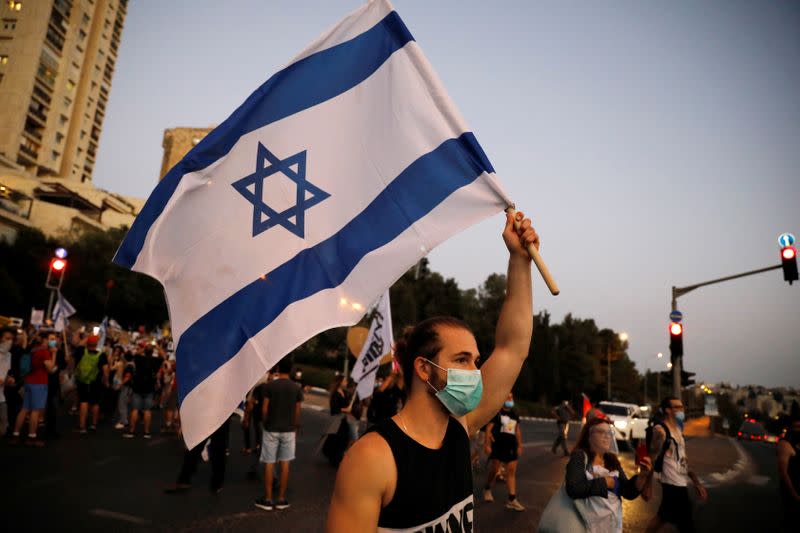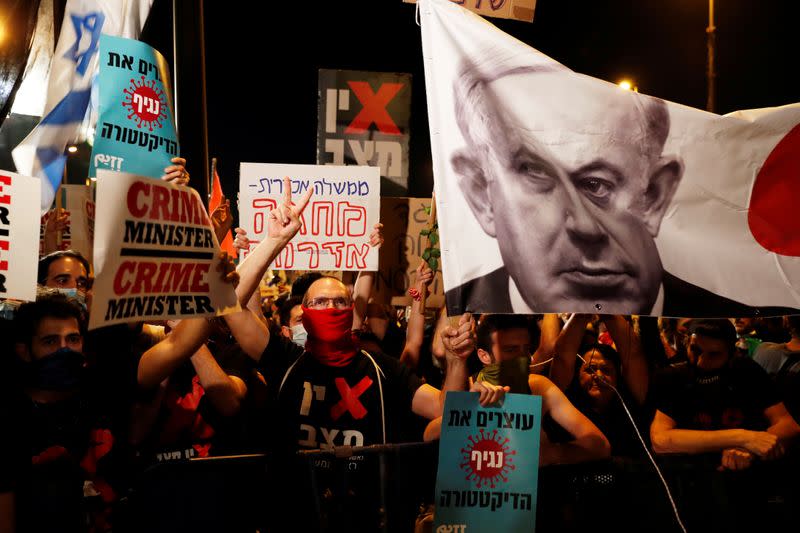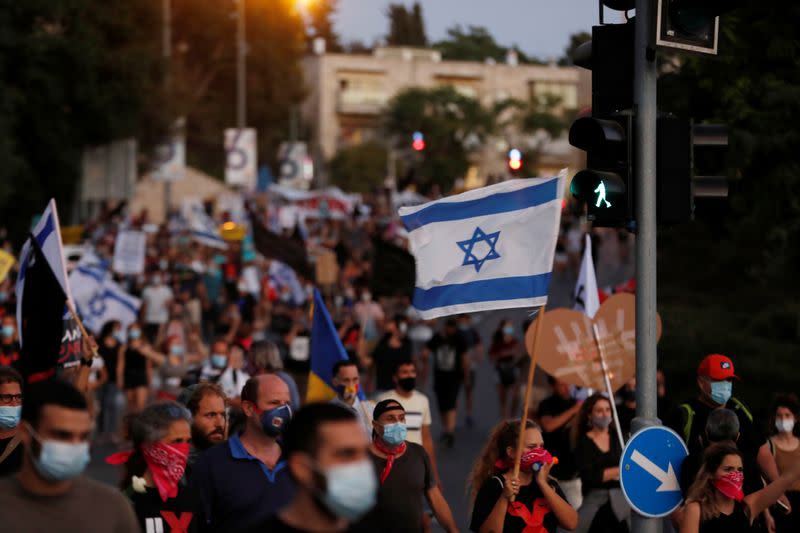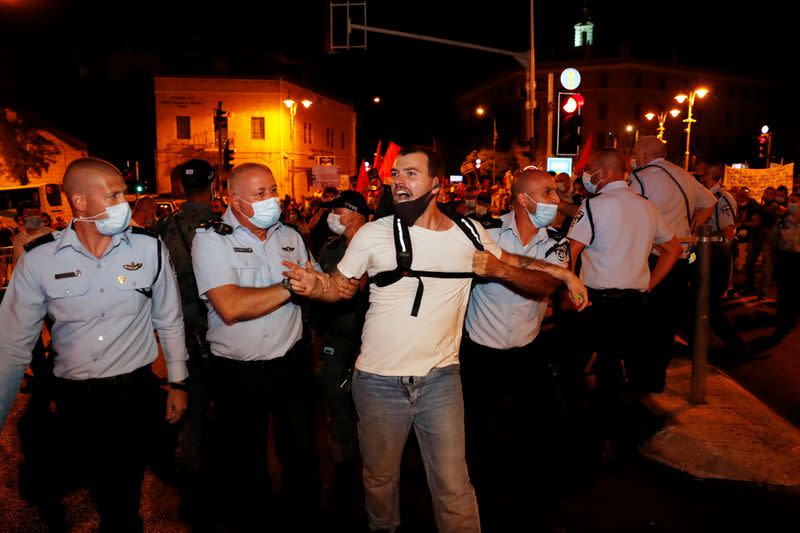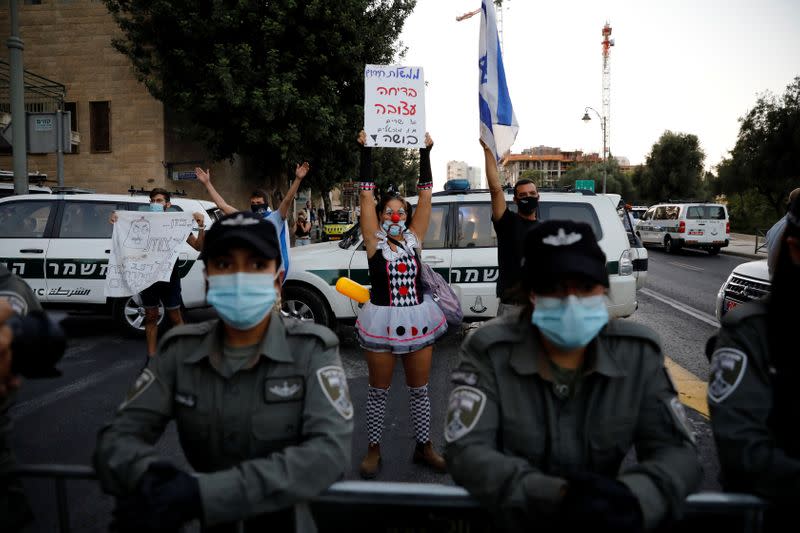Israelis urge Netanyahu to quit over coronavirus, corruption charges
JERUSALEM (Reuters) - About 2,000 Israelis rallied outside Prime Minister Benjamin Netanyahu's residence in Jerusalem on Tuesday as protests mounted against him over his handling of a worsening coronavirus crisis and alleged corruption.
Wearing protective masks, the demonstrators marched from Netanyahu's official residence to Israel's parliament, holding up signs that read "Crime Minister" and calling on the five-term premier to step down.
Reimposed coronavirus curbs after a rise in new COVID-19 cases have prompted Israelis demanding better state aid to take to the streets in almost daily demonstrations.
Public anger has also been fuelled by corruption alleged against Netanyahu, who went on trial in May for bribery, fraud and breach of trust - charges he denies.
Netanyahu has announced numerous economic aid packages. But frustrated by red tape and a slow pace, many Israelis say the aid is coming too little, too late.
"It's humiliating and insulting. You pay social security and taxes for thirty years and then have to beg (the authorities) in order to make ends meet. I'm here to protest, so that this evil government quits," said Doron, 54.
He asked not to give his full name and said he has been on unpaid leave for three months.
As part of the protest, restaurant owners set up a free buffet for the demonstrators, demanding their businesses keep open or else receive compensation.
Israel lifted in May a partial lockdown that had flattened an infection curve. But a second surge of COVID-19 cases and ensuing restrictions has seen Netanyahu's approval ratings plunge to under 30% and unemployment soar to 21%. [
Police did not provide a figure for the number of demonstrators. A Reuters cameraman estimated that about 2,000 people rallied. Israeli media said the protest drew thousands from across the country. At least six people were arrested, police said.
With a population of 9 million, Israel has reported more than 50,000 coronavirus cases and 422 deaths.
(Reporting by Eli Berlzon and Maayan Lubell; Editing by Angus MacSwan and Marguerita Choy)

 Yahoo News
Yahoo News 